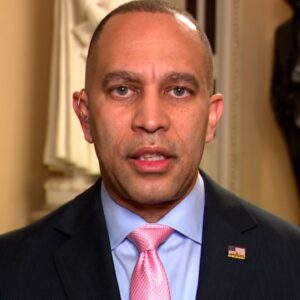The U.S. Supreme Court ruled that federal courts do not have the authority to review visa revocations in cases involving fraudulent marriages for immigration purposes, emphasizing the Department of Homeland Security’s (DHS) discretion in such matters. The unanimous decision clarified that while courts may review visa denials, they cannot intervene after DHS revokes an approved visa, reinforcing the agency’s broad authority in immigration decisions.
Justice Ketanji Brown Jackson, appointed by President Biden, wrote for the court, explaining that Congress granted the DHS the discretion to revoke a visa at any time for “good and sufficient cause.” The case, Bouarfa v. Mayorkas, involved a U.S. citizen whose husband’s visa was revoked due to involvement in a fraudulent marriage, permanently disqualifying him from residency.
The ruling could have significant implications for immigration enforcement, especially as President-elect Donald Trump plans to focus on stricter immigration policies and mass deportations. Trump’s selection of Thomas Homan as “border czar” underscores his commitment to reinforcing border security, a key element of his previous term and ongoing campaigns.
Critics, including immigration advocates and the ACLU, expressed concerns that limiting judicial oversight could lead to constitutional violations, particularly regarding racial bias. However, no evidence of such bias was found in the Bouarfa case, though the decision could make it harder for migrants to challenge decisions and add pressure to the already backlogged immigration system.




